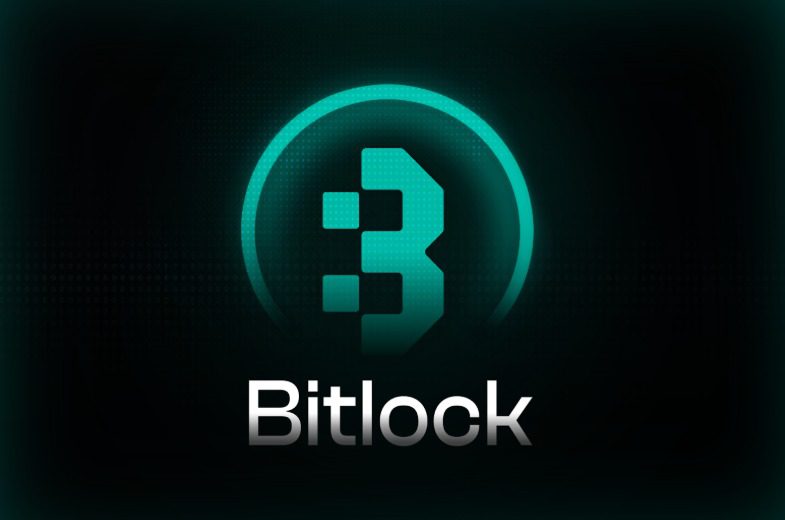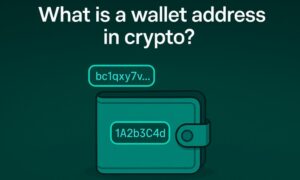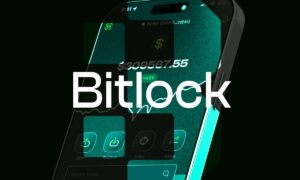The world of crypto has evolved rapidly, but one thing remains the same. Even in 2025, a large number of users still don’t fully understand what their wallet address represents or how it keeps their funds secure. For many, managing assets across multiple blockchains feels complicated, risky, and overwhelming. Copying long strings of random characters, paying unexpected gas fees, or sending tokens to the wrong network are still everyday problems.
That’s where Bitlock Wallet comes in. Built as a non-custodial, multi-chain wallet, Bitlock gives users complete ownership of their crypto without intermediaries, without KYC, and without hidden risks. But what truly makes Bitlock stand out is its real human support. Instead of chatbots or automated replies, every user gets personalized help from a real person. Combined with revenue-sharing mechanics that reward users for every transaction, Bitlock aims to redefine how people interact with blockchain.
To dig deeper into the mission and technology behind Bitlock, we spoke with one of the project’s founders. In this conversation, we discuss what a wallet address really means, why decentralization matters more than ever, and how Bitlock plans to make crypto accessible and rewarding for everyone.
Many people still don’t fully understand what a crypto wallet address is. How would you explain it in the simplest terms to someone new to crypto?
When people ask “What does wallet address mean?”, I like to keep it simple: it’s your digital identity on the blockchain. Every transaction, swap, or bridge goes through it. Think of it as your home address, but for crypto. Anyone can send funds to it, but only you can access what’s inside because it’s protected by your private key.
At Bitlock Wallet, we built our system so users actually understand what their wallet address means and how to protect it. The biggest issue in crypto today isn’t hackers, it’s confusion. People copy the wrong address, use the wrong chain, and lose money they can’t recover. We want to change that by giving users clear warnings, network validation, and full control through a non-custodial model.
So when you ask what does wallet address mean, the answer is ownership. It means your assets are truly yours, no company, no exchange, no middleman. That’s exactly why Bitlock Wallet exists: to help users understand and protect that ownership, with real human support every step of the way.
Bitlock is built as a non-custodial wallet. Why was that decision important, and how does it protect users compared to traditional custodial wallets?
In custodial wallets, someone else usually holds them. With Bitlock Wallet, you’re the only one who does.
We built Bitlock as a non-custodial wallet because true crypto ownership means no middleman. Your private keys never leave your device, and even we can’t access them. That’s what a wallet address really means to us: direct control, full privacy, and complete independence.
You often say that Bitlock “gives back to users.” What does that mean in practice, and how does the revenue-sharing model actually work?
At Bitlock, every transaction is tied to your address matters. Each swap, bridge, or trade generates small fees and instead of keeping them, we return a share to our users.
It’s simple: Bitlock Wallet doesn’t extract value; it recycles it. Part of every fee goes back to $BLOK holders and NFT owners through our revenue-sharing model. Your wallet address becomes more than an access point; it becomes a source of reward inside an ecosystem built to give back.
Many wallets today rely on automated bots or limited help centers. Why did Bitlock choose to offer real human support for every user?
I usually say it’s more than code, it’s a person’s entry into the crypto world. And when someone takes that first step, they deserve real help, not a chatbot.
That’s why Bitlock Wallet has human support. If you get stuck, you talk to someone who actually understands what’s happening on-chain. We built Bitlock for real users, not just traders so when questions come up about swaps, bridges, or security, there’s a real person there to guide you, not an automated reply.
Multi-chain functionality is one of Bitlock’s core strengths. What are the biggest challenges in making cross-chain transactions truly seamless for users?
Across different chains, that’s exactly where things get tricky. Every network has its own format and rules, so sending tokens from one chain to another can easily go wrong.
At Bitlock Wallet, we’ve worked hard to make that process feel simple. Users can manage everything in one place without switching apps or copying long addresses. Behind the scenes, the system handles the right formats, checks networks, and confirms transactions safely.
Our goal is that users don’t have to think about chains at all. They just see one clean experience, and Bitlock takes care of the complexity in the background.
Final Thoughts
As the conversation wraps up, one thing becomes clear: most crypto users still underestimate what their desctop dogecoin wallet truly represents. It’s not just an entry point to blockchain; it’s proof of ownership, privacy, and independence.
The team behind Bitlock Atomic Wallet is trying to make that concept accessible to everyone. By focusing on a non-custodial approach, real human support, and a reward system that gives back, Bitlock turns a complex technology into something simple and trustworthy.
Understanding what does wallet address mean is just the beginning of the real shift that happens when users take control of it. And that’s exactly what Bitlock is built for. You can read the full explanation and founder insights in this article.

































